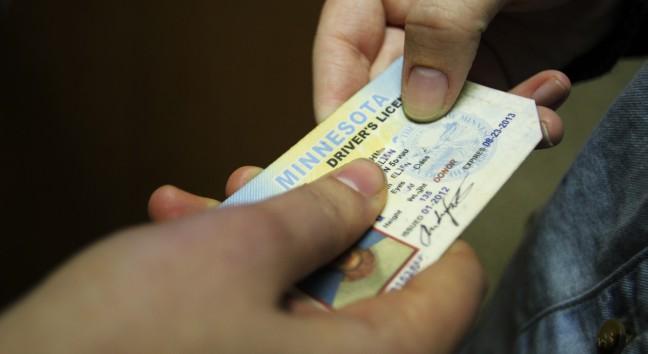Legally, it is the bouncer’s job to confiscate fake IDs from underage patrons, but for some, there is an added monetary incentive to stop these faux 21-year-olds from getting into their bars.
Madison Police Department Lt. David McCaw said bouncers caught selling fake IDs in the city are often arrested and charged. However, others find legal incentives.
To help discourage bouncers and bartenders from making an illegal profit on fake IDs, McCaw said some bars have put a $10 “finder’s fee” on any confiscated ID. This means bars may pay bouncers $10 for every confiscated ID they hand in to management.
“By state law, bouncers have the right to confiscate IDs, but are required to surrender them,” McCaw said. “Some bars do that, others don’t.”
Ald. Scott Resnick, District 8, said bars are encouraged to develop a strong relationship with the police to exchange important information about trends in fake IDs. He said this also helps bouncers know what to look for when determining the validity of an ID.
He said the police also look for ways to ensure they can find those who are successfully getting into bars with fake IDs.
To combat the number of underage drinkers entering bars, Resnick said police have been conducting “compliance checks” around the city, especially at locations notorious for offenders being present.
“The number of compliance checks have decreased in general, and particularly at bars that don’t have any issues at them,” Resnick said.
McCaw said there are also systems being put in place to prove whether bars have been effectively executing the city’s alcohol policies. One method involves exchanging IDs for “receipts.” The receipts bars receive for turning in IDs to the police serve as validation they have followed protocol, McCaw said.
For underage drinkers, McCaw said police consistently respond to incidents in which patrons demand to have their confiscated IDs returned.
In those situations, McCaw said the suspect is usually given a chance to walk away if he or she chooses to, but risk prosecution if the suspect claims an identification card that is later proven to be fake.
“Ninety-five percent of the time, I ended up writing a bunch of tickets to a kid who wanted their fake ID back and continued to force his bluff,” he said.
To help ensure execution of the city’s alcohol policies, Resnick said there are different training sessions required by the city for liquor establishments. These courses include teaching bartenders and bouncers the proper rules and regulations for handling intoxicated patrons, he said.
When it comes to establishing the ideal alcohol-related environment, Resnick believes the city’s current policies “always have room for improvement.”
He said some ideas he had were to avoid mechanisms such as ID scanners to better utilize resources and to ensure those who need help during alcohol-related emergencies feel comfortable contacting authorities without the fear of consequences for being under the influence.
“There’s no reason to cause panic among students if it’s not without warrant,” Resnick said.



















